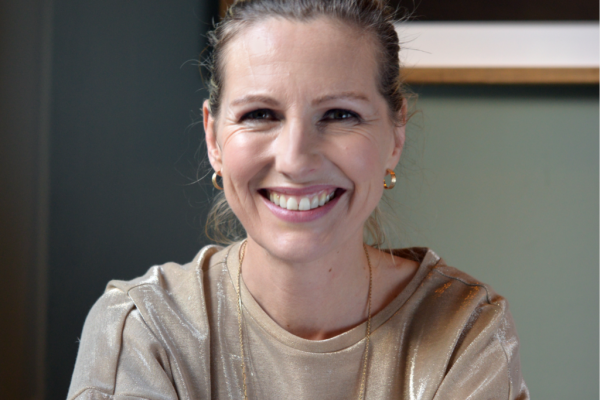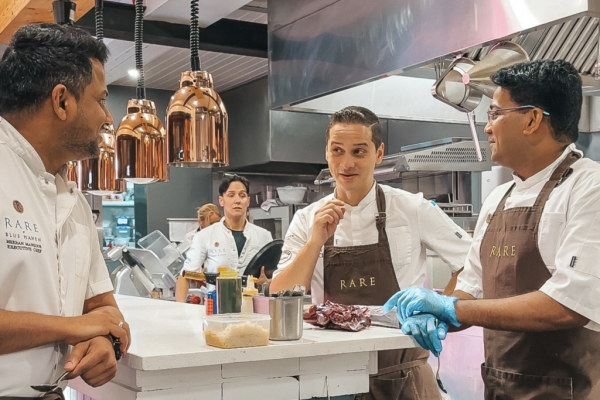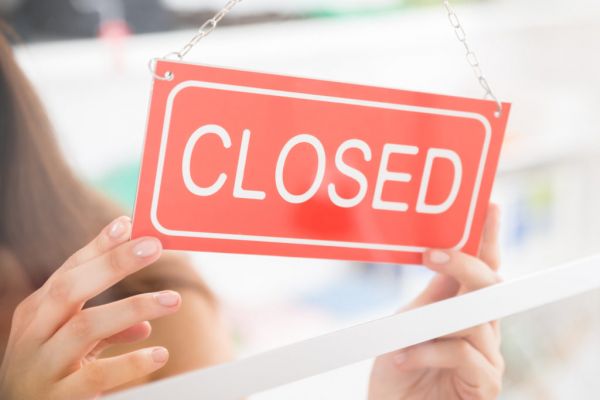Domini Kemp and Brian Montague’s new venture, Lottie's, in Rathmines, was awarded a Bib Gourmand by Michelin within the first few months of opening. Here. Domini reflects on the award, and opening during a tough time in the industry.
This article was originally published in the Spring 2024 issue of Hospitality Ireland Magazine, in February of 2024.
What does it mean, winning this award?
The Bib Gourmand is for delicious cooking at an affordable price. It’s exactly what we intended to do when we opened Lottie’s. As a neighbourhood restaurant, we wanted to open something that was going to be loved by the locals, but also be good enough to attract people outside Dublin 6. I think we’ve done that by sticking to offering exceptional value, especially in this challenging economic climate, and focusing on really delicious food.
Do you think that Michelin still has the influence that it used to?
You do often see the usual grumbles about whether Michelin is still relevant, whether it’s too focused on fine dining, but I think, in recent years, their reach has grown. Obviously, it’s a lot more global. They now do a green star, for recognising restaurants that do a superb job at embedding sustainability into their practices and menu – and, yes, regardless of the grumbles and criticism that appears from time to time, it is still, by far, the most respected award within the industry.
Tell us about opening Lottie’s.
We took Lottie’s out of liquidation. It had had had a difficult beginning in a different operator’s hands, so there was always going to be a bit of a challenge in terms of changing the perception and creating our own reputation. We knew it was going to be a neighbourhood restaurant, we knew it was going to be reasonably priced, we knew it was going to have great food, but we also were conscious that you have to work a little bit harder in the suburbs because you don’t get the same amount of footfall that you do in the city centre.
We wanted to be very cautious and careful about how we opened and how we built the business, so we took a very slow-and-steady and long-term approach. Because it had been a restaurant, we needed to do a change in terms of the atmosphere and the branding, and we have a wonderful relationship with designers Nicky Hooper and John Kaye, who really understood the brief and the budget constrictions.
So, trying to make an impactful change when there’s already a lot of things that can’t be undone – and there are a lot of nice things in the restaurant we wanted to keep – it’s sometimes harder to do that than starting off with a blank canvas, but I think we’ve done a really solid job of changing the look and feel and making it a restaurant that isn’t just a neighbourhood [restaurant]. It’s still a really fun place to go for a date night on Saturday night, or a big family celebration, or a night out with your friends.
From where did the name come?
The co-owner of Lottie’s is Brian Montague. He is my business partner, and he has a grandchild called Lottie, so she got the dibs on the name.
What is the ethos of Lottie’s?
We are proud members of Euro-Toques, and, as a result, we really put a lot of store in the provenance of our food, and we have very good relationships with our suppliers. The menu is quite tight because, in order to keep the value proposition, we really try and focus on minimising food waste and ordering very sensibly – ordering different cuts that might require more work. So, things like our bavette [flank steak], which has been on since day one, which is a cut of beef that we cook in a water bath, so it’s perfectly pink, and then we grill. We change the garnish on that throughout the seasons.
Relationships with our beef suppliers, different veg suppliers, different cheese suppliers, sourdough bread suppliers – it’s kind of critical to us, and a very big part of our USP, so I think everyone knows the menu is quite small and tight. It changes quite regularly, so we really keep that level of activity and focus on the menu and really use a lot of our EPOS tools to look at that analysis, to see what’s selling, what’s not selling, coupled with the feedback from the front-of-house management, and really trying to do that analysis, so that we’re always fine-tuning and tweaking, but so that the customer wins. I suppose that is the ultimate drive.
What were the biggest challenges around opening?
I suppose it’s the same around any opening. You have a vision, you have mood boards, you have ideas, you have menus, you have tastings, you have R&D days, you build a team, you try and ensure all the gremlins in a building are dealt with, and that you get the look and feel and flavours and team all right, but until you actually open the doors, you don’t know how well it’s going to be received. So, I think having a really strong vision, being very clear, and really being very bullish, I suppose, about the people that are going to be tasked with opening [are important].
Our head chef, Ted, and manager, Jeff – they’re really good, strong individuals that have strong personalities and strong visions. We’re all pretty aligned in what we wanted, and, I suppose, put the head down, work hard, and just be very open to that feedback. That’s always the way you have to go about an opening.
What are the main challenges within the industry at the moment?
The VAT rate should be brought down to 9%. It’s definitely a very difficult time. Margins have been shaved left, right and centre. Staffing has definitely eased, but, obviously, there’s been a lot of inflation around wages. The biggest mistake has really been for the government to have bundled in restaurants with hotels. We should be at different rates.
Restaurants just don’t have the luxury of charging a markup when demand holds up – being able to charge more for our dishes on a busy Saturday like than we can on a rainy Wednesday night – whereas hotels are able to do that.
It means that we really have to manage our costs. Every penny counts, and I guess we’re really trying to do our best in terms of the reputational damage the hospitality industry has seen. There are tourists that don’t even come into Dublin any more – they go straight down the country. We are hearing that from tour operators. So, yeah, I think it’s a bit of a perfect storm. People obviously have been hugely affected – we all have – by interest rate hikes, and everyone’s disposable income has really shrunk, so people are not prepared to pay for disappointing meals. Disappointment is a luxury that no one can afford, so people tend to stay going to their favourite restaurants, and they don’t tend to try out new places, so that is a challenge for new openings.
Tell us about your other businesses.
Valence Hospitality started about two years ago. My co-partner in that is Brian Montague, who has the Winding Stair Group – they have four restaurants within that group – and, obviously, I’m still in business with my sister, Peaches, with the Itsa Group and Feast Catering, and the Commons at MoLI. Peaches has taken over from me as MD of that group, and I’ve moved over to be CEO of Valence Hospitality.
Between all the groups, there are some shared services that we’ve all signed up to, in order to try and reduce some of our overheads. Everything from health and safety to HR to compliance to procurement to purchasing to accounts – all things that have very little to do with the USP or the DNA of the restaurant or the brand once you walk through the door – but it’s just really to try and achieve some savings, to offset against the massive challenges that we’re seeing everywhere in our industry.








